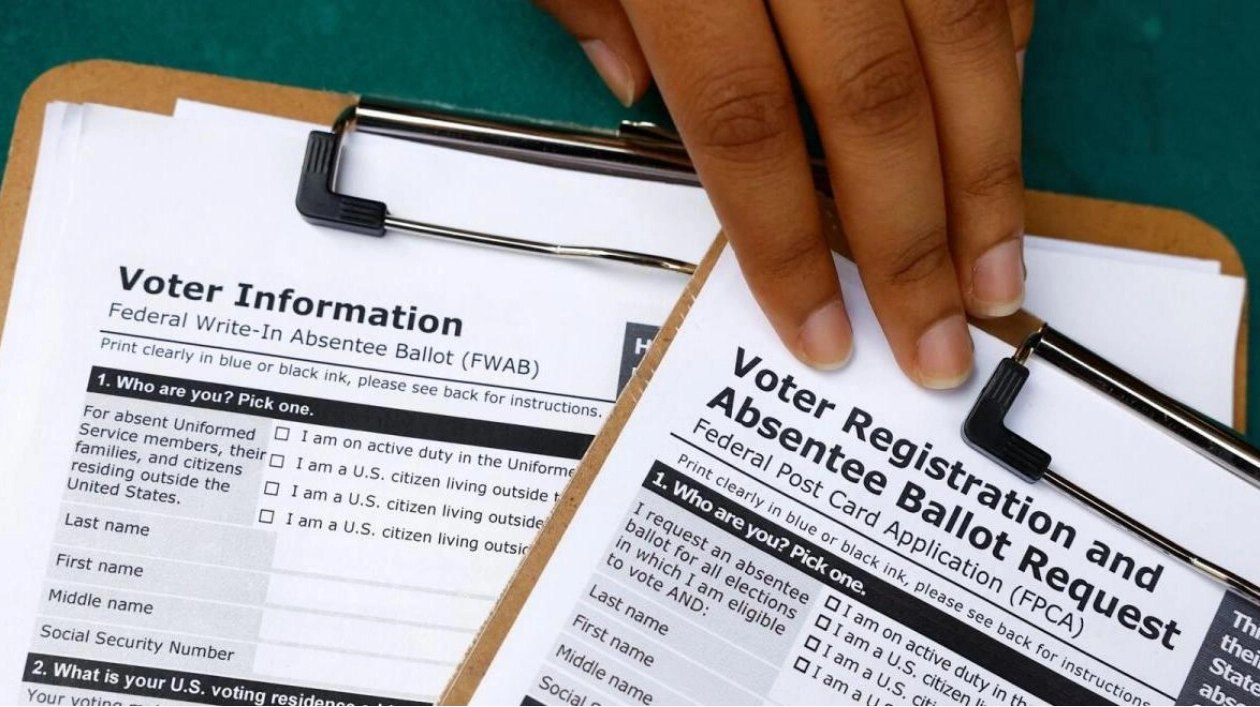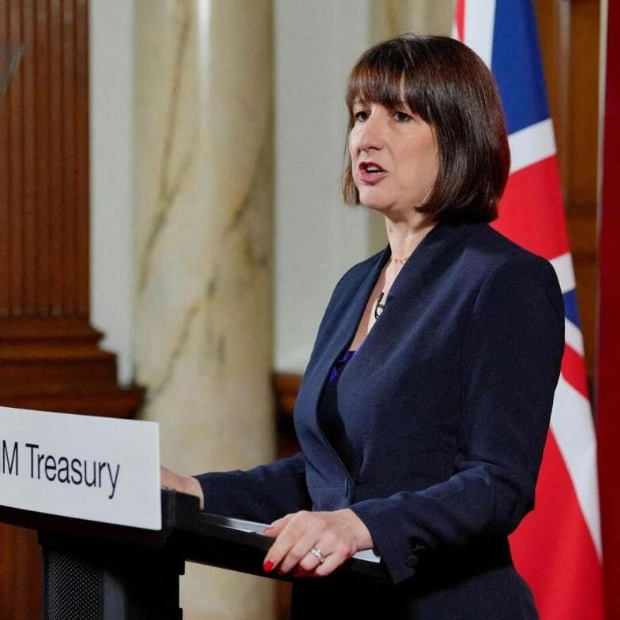A US citizen abroad voter holds a voter registration and absentee ballot request form, along with a voter information form, at a stand set up outside a café by Democrats Abroad volunteers in Paris, France, on Monday. These volunteers assist Americans living in Paris to navigate the complexities of state and local election laws, as reported by REUTERS.
Bob Vallier, a Paris resident who has spent most of the last 30 years outside the United States, has already cast his vote in his home state of Michigan for the November 5 election. "I understand that whatever happens in America impacts the rest of the world. This understanding comes from my experience living abroad," said Vallier, who chairs the LGBTQ+ caucus for Democrats Abroad. Vallier's vote, along with those of other Americans overseas, could be decisive in closely contested states like Michigan, which is one of the most competitive states in the election. Recent polls indicate that Democratic candidate Kamala Harris has a slight advantage over her Republican rival, Donald Trump.
The Democratic National Committee estimates that 1.6 million US voters abroad are eligible to vote in one of the seven swing states—Arizona, Georgia, Michigan, Nevada, North Carolina, Pennsylvania, and Wisconsin—that are likely to determine the election's outcome. This group is believed to lean towards the Democrats. Among those who used Vote From Abroad, a non-partisan voter support tool linked to the DNC, three-quarters of overseas voters in the 2020 election identified as Democrats. For the first time in a presidential election, the DNC has allocated funding—approximately $300,000—to Democrats Abroad to help register Americans overseas and enhance mail-in voting operations and other efforts. The DNC has also launched social media ads urging Americans abroad to submit their ballots.
Republican presidential candidate Donald Trump is also targeting American expatriates. Earlier this month, he pledged to end the double taxation of overseas Americans. While the former president's campaign has not provided further details on how this policy would be implemented, it could eliminate a burdensome requirement that mandates US citizens to file income taxes in the United States regardless of their residence.
While Americans abroad do not have to pay US tax on their first $126,500 in earned income and are eligible for some foreign tax credits, the process can be administratively challenging for expatriates from many other countries. "For many Americans abroad, including myself, the only consistent interaction we have with the US government is through the IRS every April when we have to file and pay our taxes," said Zennon Kapron, a Singapore-based fintech consultant registered to vote in New York, when asked if Trump's proposal would influence his voting decision. "If a candidate seriously addresses tax reform for expatriates, that could sway my vote," he added.
Solomon Yue, CEO of Republicans Overseas, stated that Republicans have been fighting to improve taxation policies for Americans abroad for years, suggesting that this could significantly impact the expatriate vote. "I already see Democrats Abroad in a state of panic," he said. Despite Trump's tax pledge, he has also alleged, without evidence, that Democrats are pursuing the overseas vote to cheat. The Republican National Committee, closely aligned with the Trump campaign, has targeted overseas voting in legal challenges, particularly in Michigan, North Carolina, and Pennsylvania. If these lawsuits are successful, they could reduce the number of Americans abroad who are eligible to vote.
This move prompted six House Democrats to write a letter to the defense secretary, inquiring whether these lawsuits would affect the constitutional rights of service members and referring to House Republicans' allegations in the lawsuit as an attempt "to sow discord and misinformation." The challenge of attracting overseas voters, a group estimated to number between 4.4 million and 9 million by major political parties and outside experts, is that only a small fraction are believed to vote. Unlike citizens of many other countries, US voters cannot cast their ballots at their embassies on Election Day. Instead, they must submit their ballots to the states where they are registered, typically by mail.
According to the US Federal Voting Assistance Programme, most eligible overseas voters do not vote, with fewer than 8% estimated to have sent in ballots in the 2020 presidential election, compared to an overall turnout rate of 67%. The overseas voter participation rate in the 2022 mid-term elections was just 3.4%. In a neighborhood in central Paris, volunteers set up a stand every Monday and Tuesday afternoon outside a café to boost this percentage by assisting Americans in navigating the bureaucracies of state and local election laws. Over the course of two hours, they guide people through the process of registering to vote or filling out backup ballots in case their original ballot encounters issues.
"The problem is that the instructions are not clear," said one of the volunteers, Tanya, a retired lawyer. Claudie Le Corre, a resident of a southeastern Parisian suburb, visited the stand last week because she had not received her ballot from New York, where she is registered. She believed she had been removed from the voter rolls and completed paperwork to re-register. "I am concerned about the future, for our children, and all these populist movements—which include Donald Trump—worry me," Le Corre said.
Source link: https://www.khaleejtimes.com






